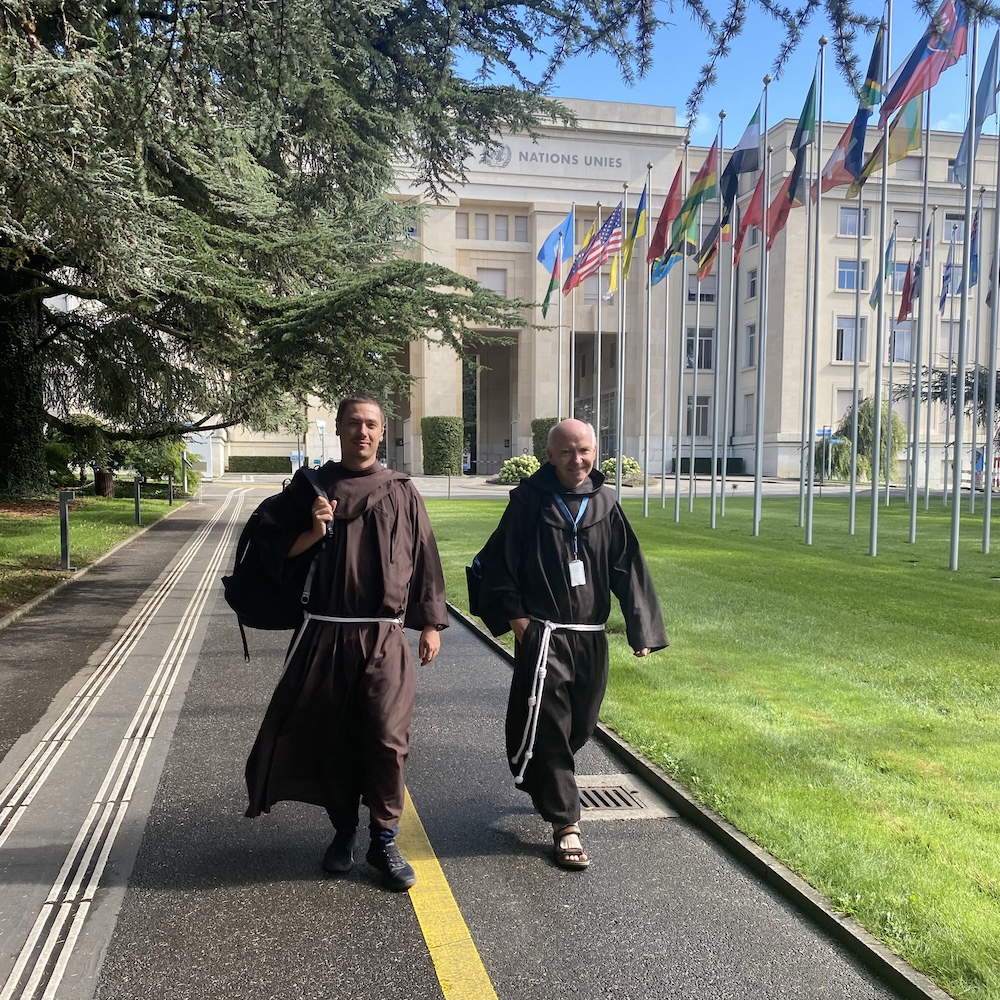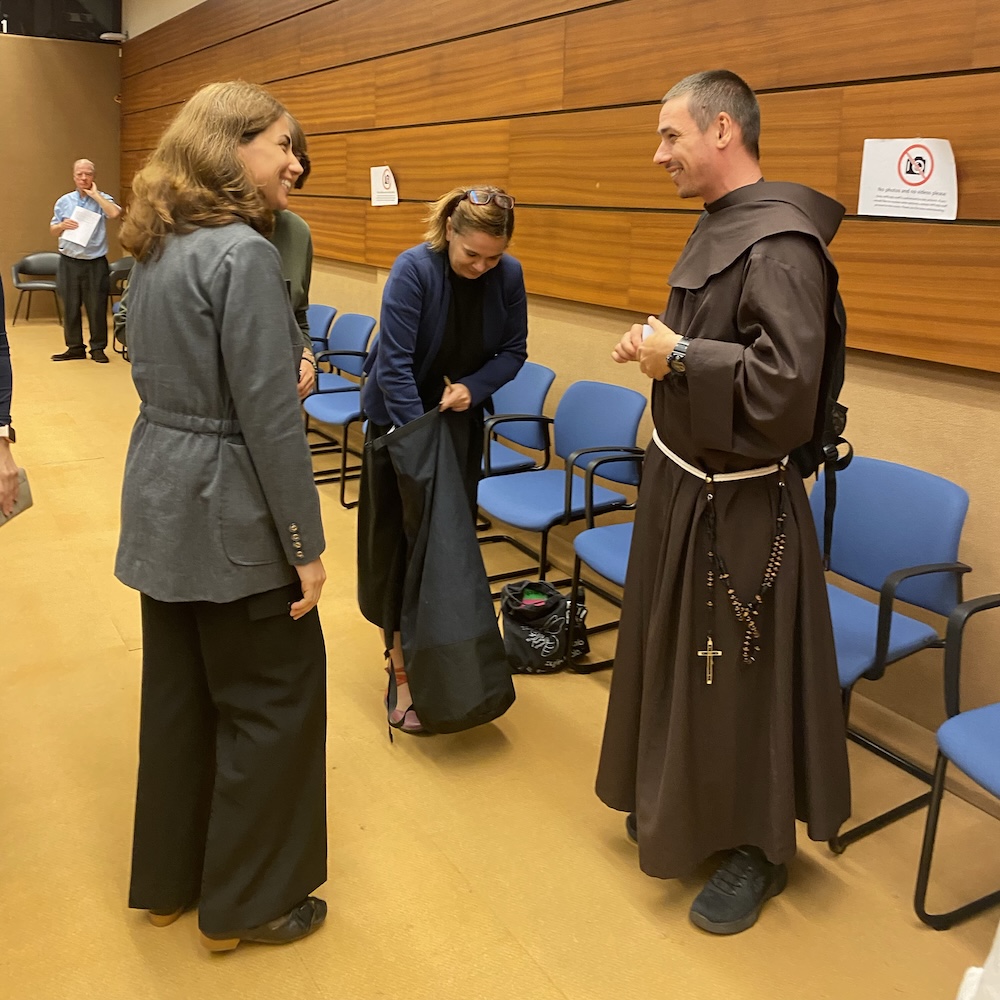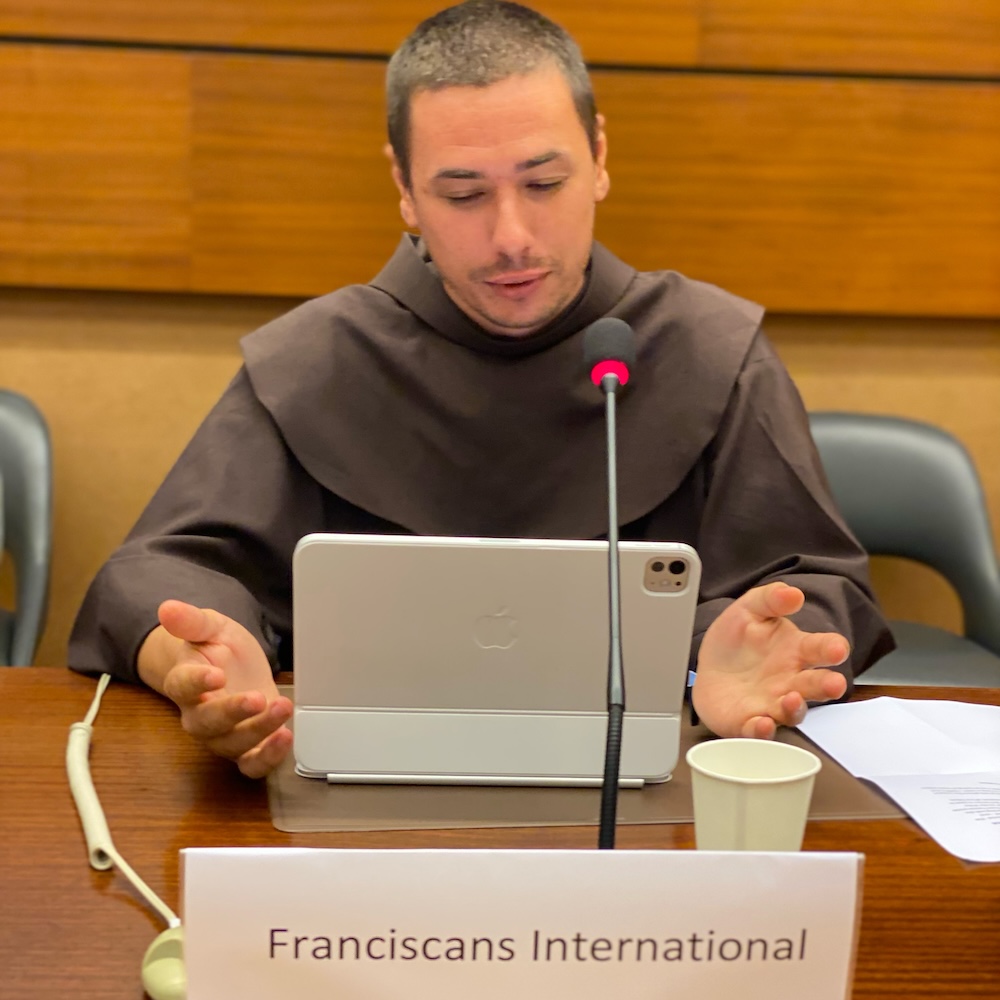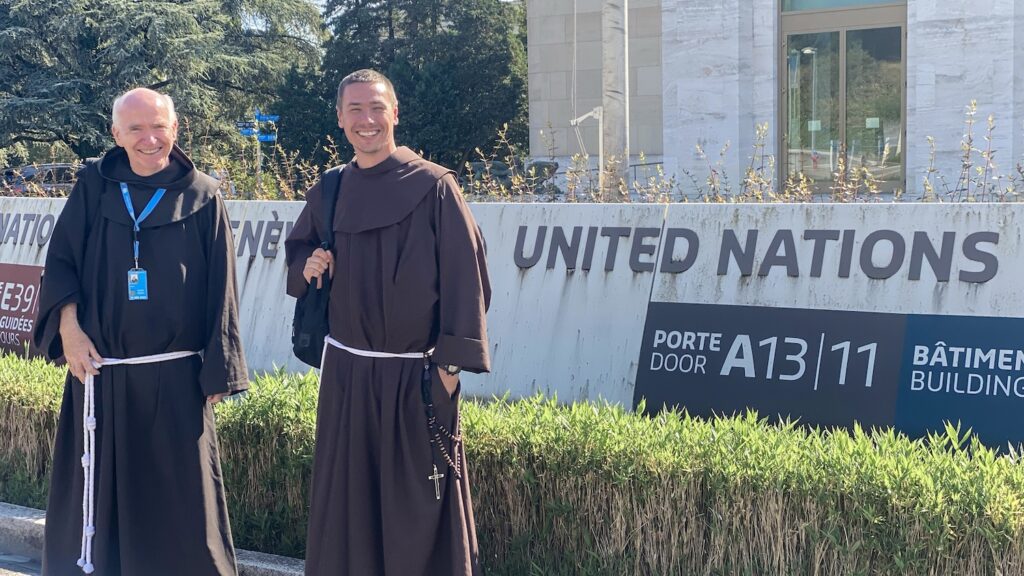A Changing Landscape: From Forest to Fire
In Croatia, environmental degradation and migration challenges have created a crisis of human dignity. From waste-burning pits that poison communities to migrants caught between bureaucracy and indifference, everyday lives are marked by injustice. At the intersection of these struggles stands a Franciscan brother who refuses to look away.
Brother Benjamin Milkovic OFM, serving with the Justice, Peace and Integrity of Creation (JPIC) Office in Croatia, carried the concerns of communities affected by environmental deregulation and of migrants to the international stage, using the UN Universal Periodic Review (UPR) of his country as a platform. The UPR is more than a diplomatic process; it is a moment when the calls of those who are otherwise unheard can be amplified on the world stage.



Can you tell us about yourself and the changes you have witnessed?
I grew up in the small village of Brestanovci, surrounded by forests that felt endless. As a child, I remember running freely among the trees, playing in nature, that was part of who we were. But today, most of the forest is gone. Deforestation and illegal waste burning have scared our land.
I have watched it unfold year after year, feeling the loss not just in the land, but in the silence where birds used to sing and children used to play. What hurts most is knowing that the children growing up now will not have the same chance to be shaped by nature the way I was.
You talked about illegal waste. What are the issues there?
Not far from where I used to live, a small community has been deeply affected by waste-burning pits: open areas where trash is burned without regulation. The smell is unbearable. Children and families are affected, and still there are no fines, no regulations, especially for big businesses. The government looks away.
I have seen how environmental neglect becomes social injustice. How children are denied their rights to clean air, to safe play, to a future rooted in nature. This is not just a Croatian story. It is a global one.
What changes have you observed regarding migration in Croatia?
The migration landscape in Croatia is changing quietly, steadily, and profoundly. Croatia is a country of transit. Migrants pass through, often exposed to smuggling and trafficking. And yet, every person is a creature of God, worthy of care and compassion.
Every Sunday at Mass, I see more foreign faces. Though the liturgy is conducted in Croatian, they still come. They do not speak the language, but they pray with reverence and hope. I also see how collaboration in our community has been key to responding to growing needs that the State cannot, or is too slow to, address.
How is your community responding to these challenges?
We have begun discussing the possibility of offering Mass in English so that everyone can feel truly included in the spiritual life of our community. At my church, I run a youth program. I hope to open it to foreign youth as well, to help them build community, cultivate values, and grow into good people.
What inspired you to take these concerns to the UN?
My inspiration comes from Francis, his call to care for our common home and treat all fellow creatures with dignity and respect.
This is not something I just do for advocacy; it is a way of living the Gospel that has both social and environmental dimensions.
Despite challenges, what gives you hope?
In all of this, I see a deeper truth. Our response to migration and environmental injustice reflects our values. And I believe we can do better. We must do better.
When I see migrants praying with hope despite not understanding the language, when I see communities organizing to demand clean air, when I see young people eager to build bridges across cultures, I see the Kingdom of God breaking through.
How was your experience presenting to the UN?
Standing before the international community with Franciscans International, I carried the voices of the unheard to make States aware of our shared responsibility, our right to a clean, healthy and sustainable environment, and the dignity of each human being, especially migrants.
As Croatia human rights record is reviewed at the UN, Br. Benjamin’s voice joins a global chorus of Franciscans working at the intersection of environmental and social justice, proving that the message of St. Francis remains as urgent today as it was 800 years ago.

